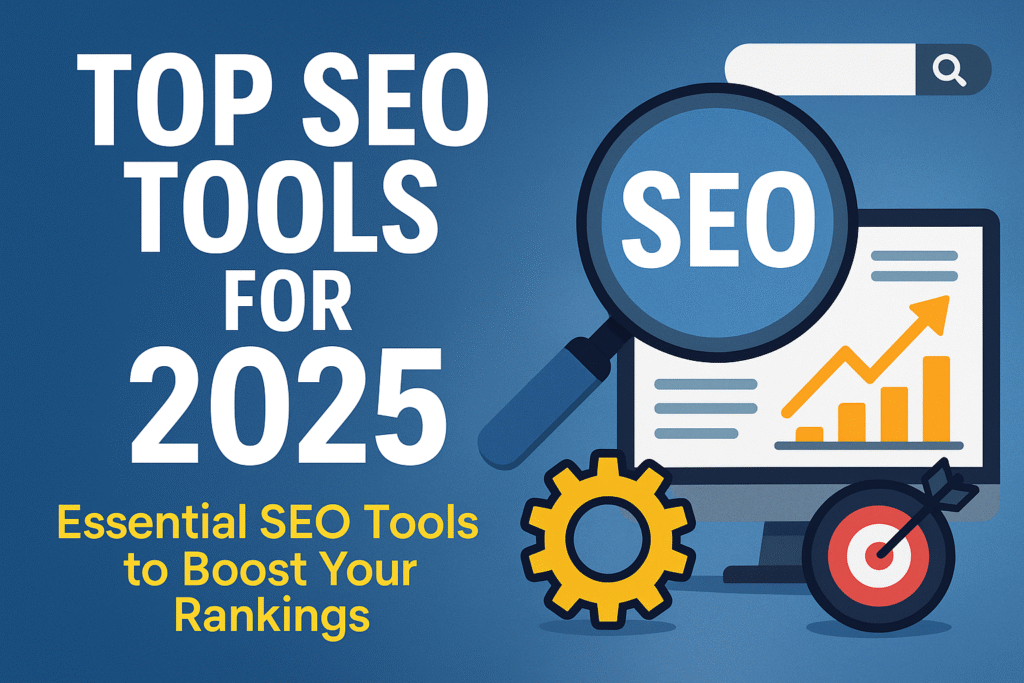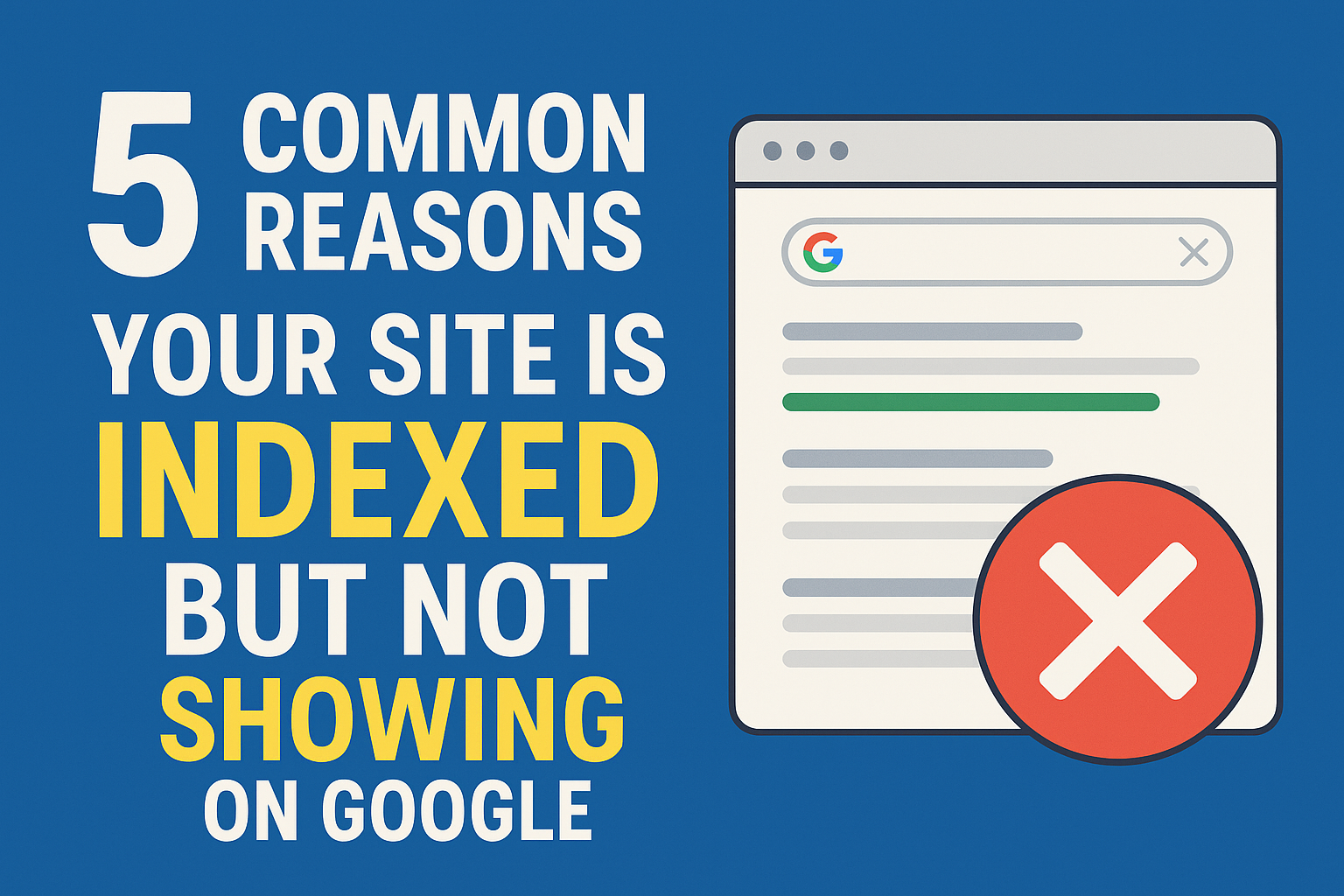What is AI SEO? How AI SEO is Revolutionizing Search Optimization
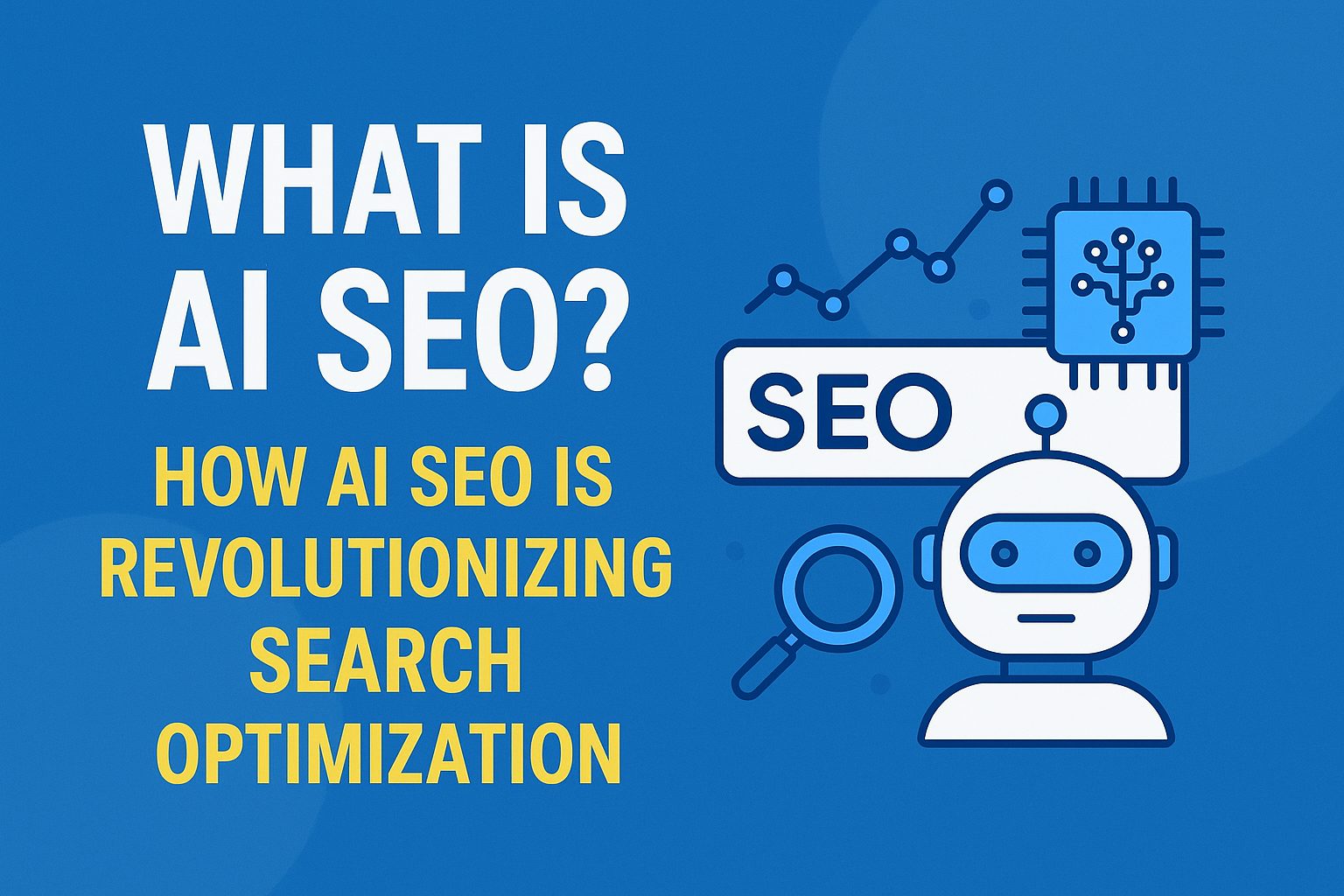
In the ever-evolving world of digital marketing, AI SEO is becoming increasingly important. AI SEO refers to the integration of artificial intelligence (AI) technologies into search engine optimization practices, helping businesses improve their website performance and rank higher in search engine results. This article will explore how AI SEO is transforming the SEO landscape and why businesses should consider integrating AI into their digital marketing strategies.
What is AI SEO?
AI SEO is the use of artificial intelligence to enhance SEO strategies. By leveraging machine learning algorithms and data-driven insights, AI SEO automates and optimizes SEO tasks to improve rankings. AI tools can analyze vast amounts of data, offering actionable insights into keywords, content optimization, user behavior, and much more.
Traditional SEO methods rely heavily on manual effort, but with AI SEO, the process becomes much more adaptive and efficient. By using AI, SEO specialists can make real-time, data-driven decisions that help them stay ahead of SEO trends and enhance their website’s performance.
For more on AI SEO, check out this Google AI blog for updates on how AI is impacting various fields, including search.
How AI SEO is Revolutionizing Search Optimization
AI is changing SEO in numerous ways, from improving keyword research to automating repetitive tasks. Below are key ways AI SEO is transforming search optimization:
1. Revolutionizing Keyword Research with AI SEO
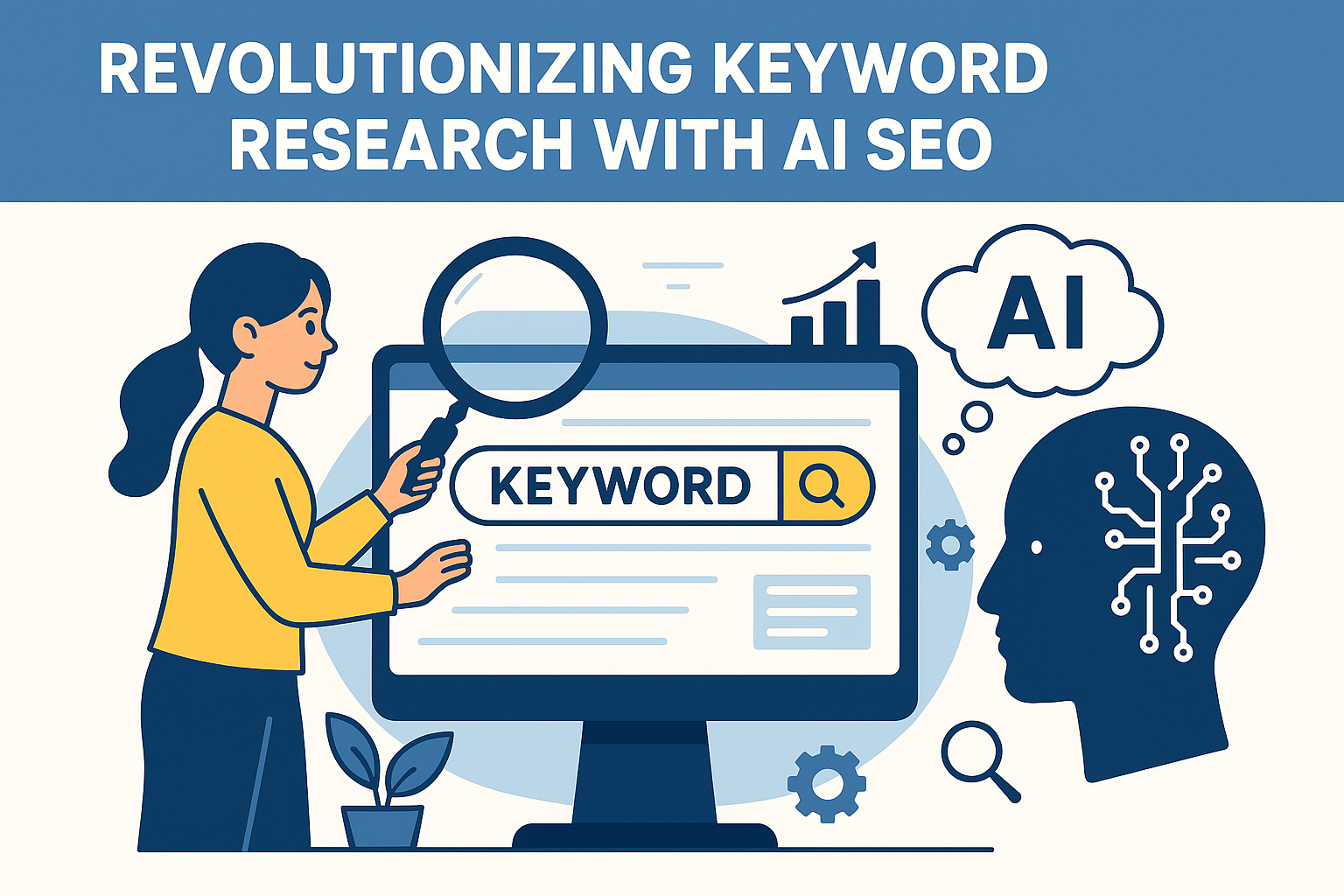
AI is making keyword research more accurate and efficient. Tools like Google RankBrain, Clearscope, and MarketMuse utilize AI SEO to analyze user intent and identify high-value keywords. By examining large datasets, AI can provide deeper insights into which keywords will perform best based on user behavior, competition, and search trends.
AI also helps SEO professionals predict which keywords will drive the most traffic, allowing businesses to focus on the best opportunities for ranking. To explore more about keyword optimization, you can visit Moz’s Keyword Research Guide.
2. AI-Powered Content Creation and Optimization for AI SEO
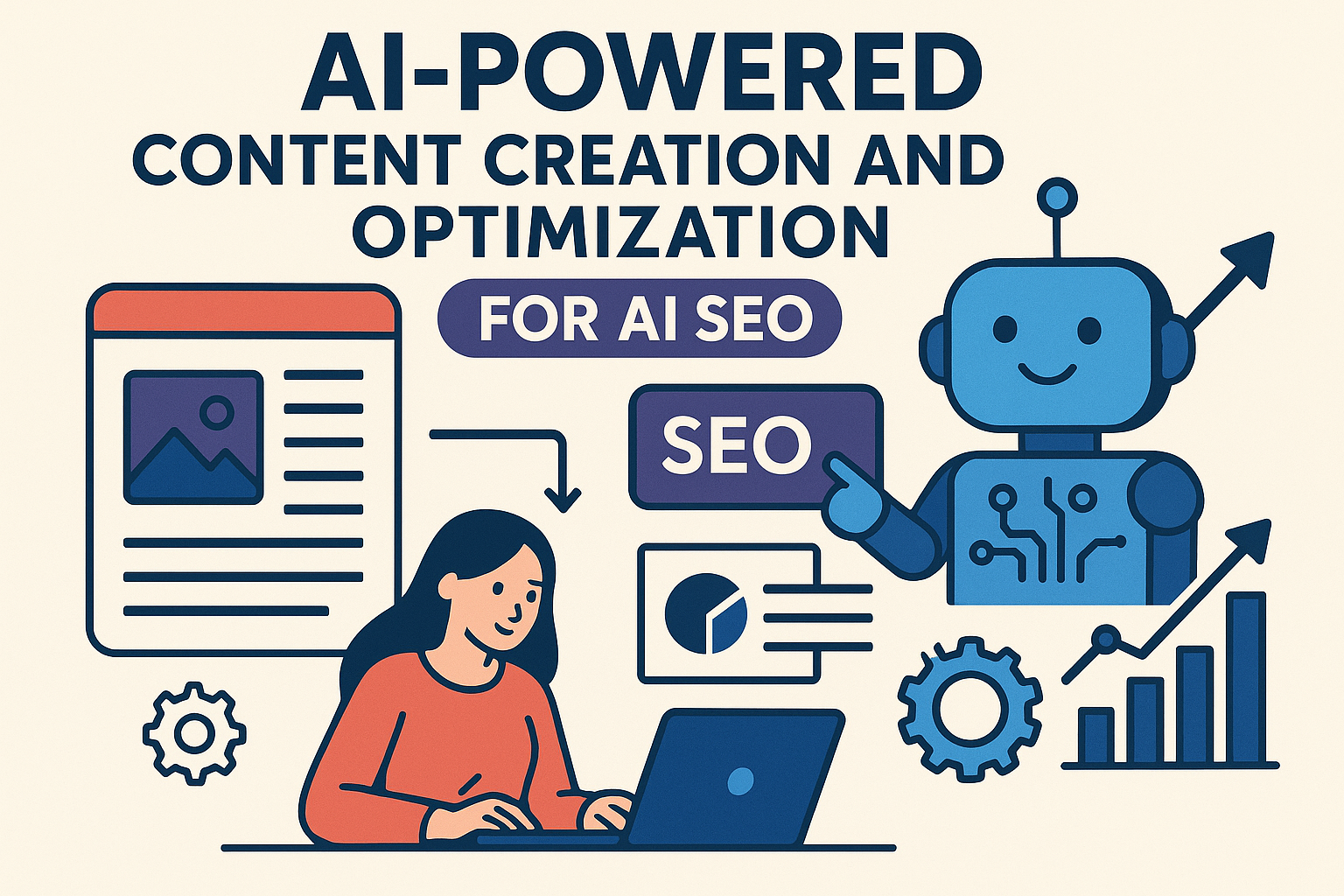
Content is at the heart of SEO, but creating high-quality, relevant content consistently can be a challenge. tools like OpenAI’s GPT-4 can assist in generating content that matches search engine preferences in terms of tone, structure, and quality. These tools analyze top-ranking pages and create content that aligns with search engine algorithms, helping businesses save time while improving their content’s performance.
Additionally, tools optimize existing content by identifying keyword gaps and suggesting updates, ensuring content stays relevant and competitive in search rankings.
For more on AI-powered content creation, check out HubSpot’s AI Content Marketing Tools.
3. Enhancing User Experience (UX)
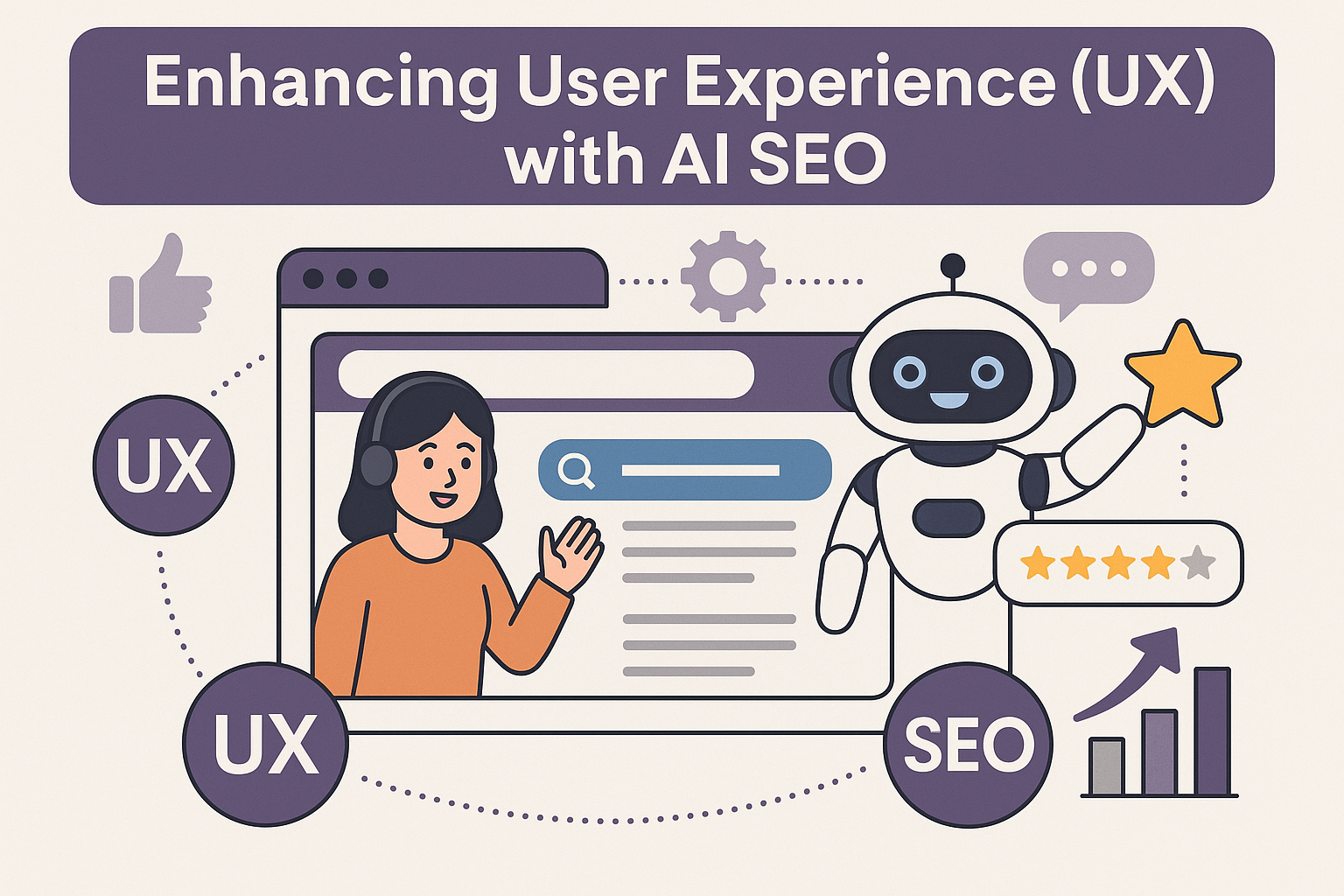
User experience (UX) is a significant ranking factor for search engines. AI SEO helps improve UX by analyzing user behavior, pinpointing bottlenecks, and suggesting improvements. AI-powered tools track metrics like bounce rate, time on page, and page load speed to provide insights into how users interact with a website.
By improving the mobile experience, suggesting UI changes, and predicting user behavior, ensures that websites provide a smooth and engaging experience that boosts rankings.
For more on improving UX, visit Google’s Web Vitals, a guide on how user experience impacts rankings.
4. Enhanced Personalization of Search Results
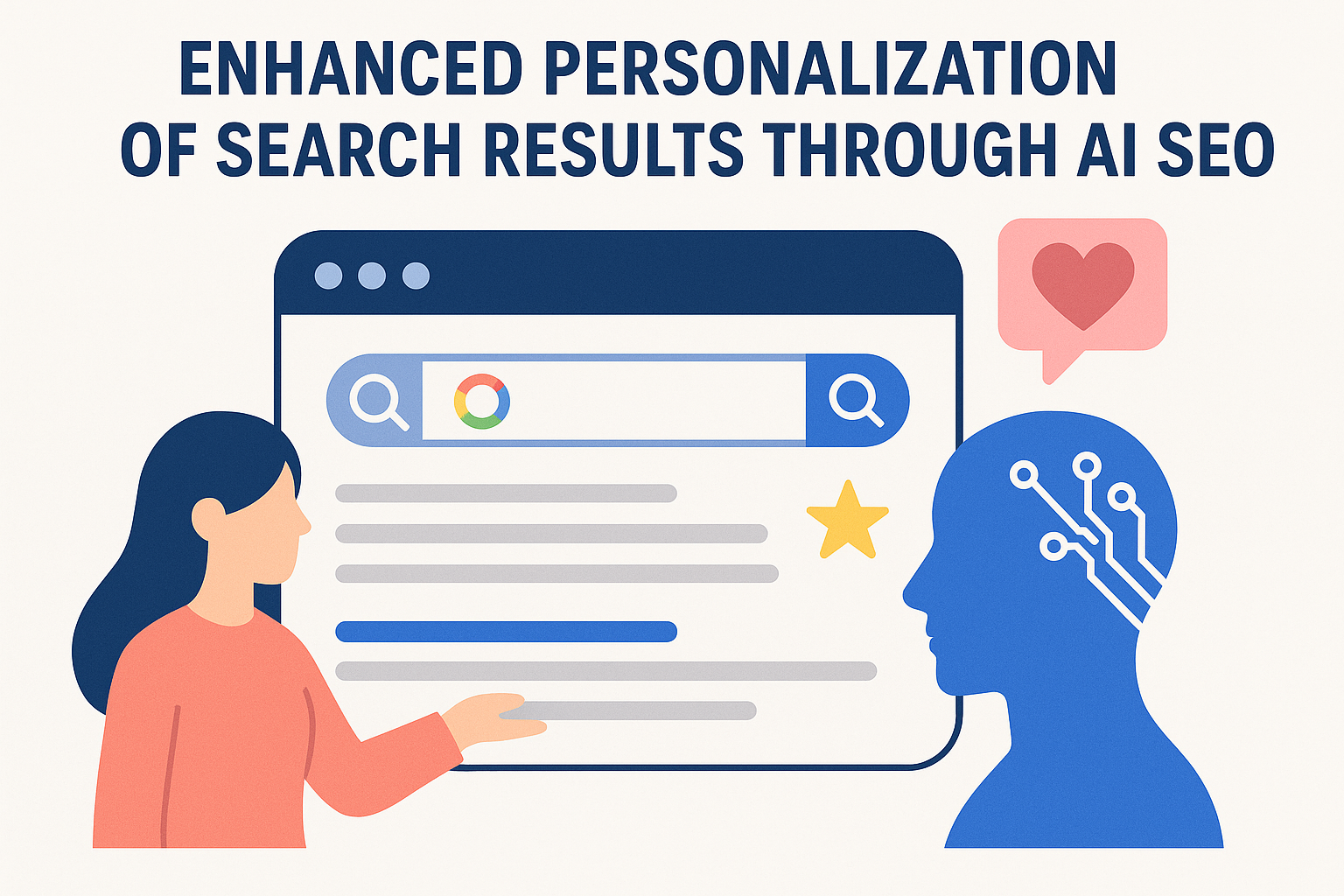
Personalization is a significant shift in how search engines provide results. With AI SEO, search engines like Google are able to deliver personalized results based on a user’s location, browsing history, and search preferences. AI algorithms help search engines understand user intent, tailoring the content to individual users.
Websites that utilize can create a more personalized experience by optimizing content for specific user segments. This leads to higher engagement, longer sessions, and ultimately, better SEO performance.
Learn more about personalized search strategies in this Search Engine Journal guide.
5. SEO Automation: Saving Time
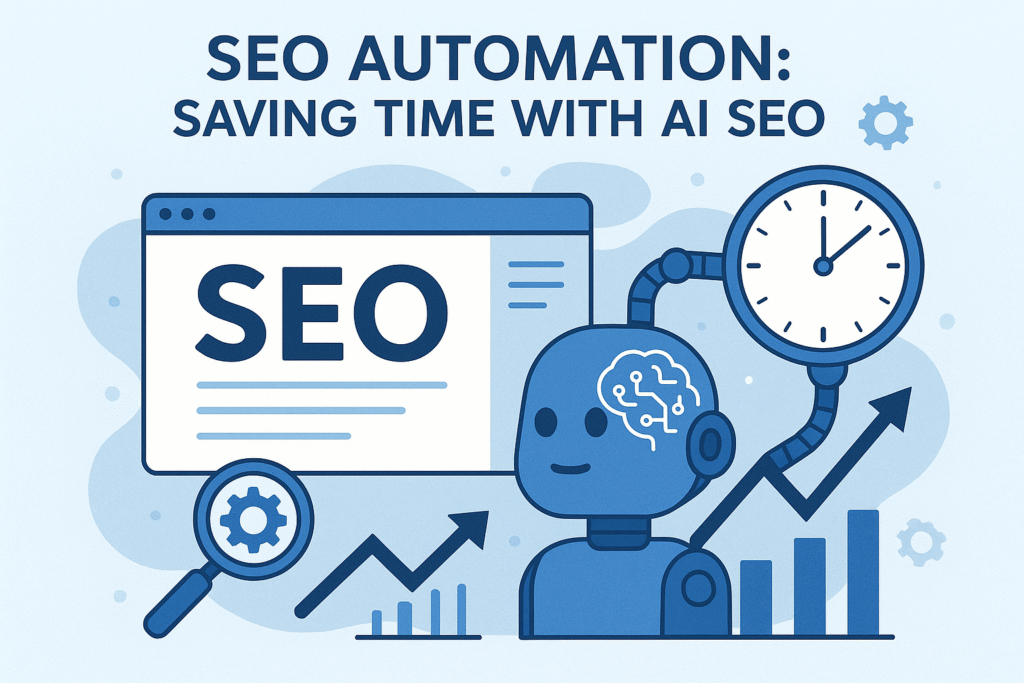
One of the most significant benefits of is the automation of repetitive tasks. SEO tasks like keyword tracking, link-building, and technical audits can be automated with AI-powered tools. Tools like SEMrush, Ahrefs, and Moz utilize to track keyword performance, identify broken links, and analyze backlinks.
Automation frees up time for SEO specialists to focus on strategy, creative tasks, and decision-making, while handles the heavy lifting.
For more insights on SEO automation, check out SEMrush’s automation tools.
6. Predictive Analysis for SEO Trends with AI SEO
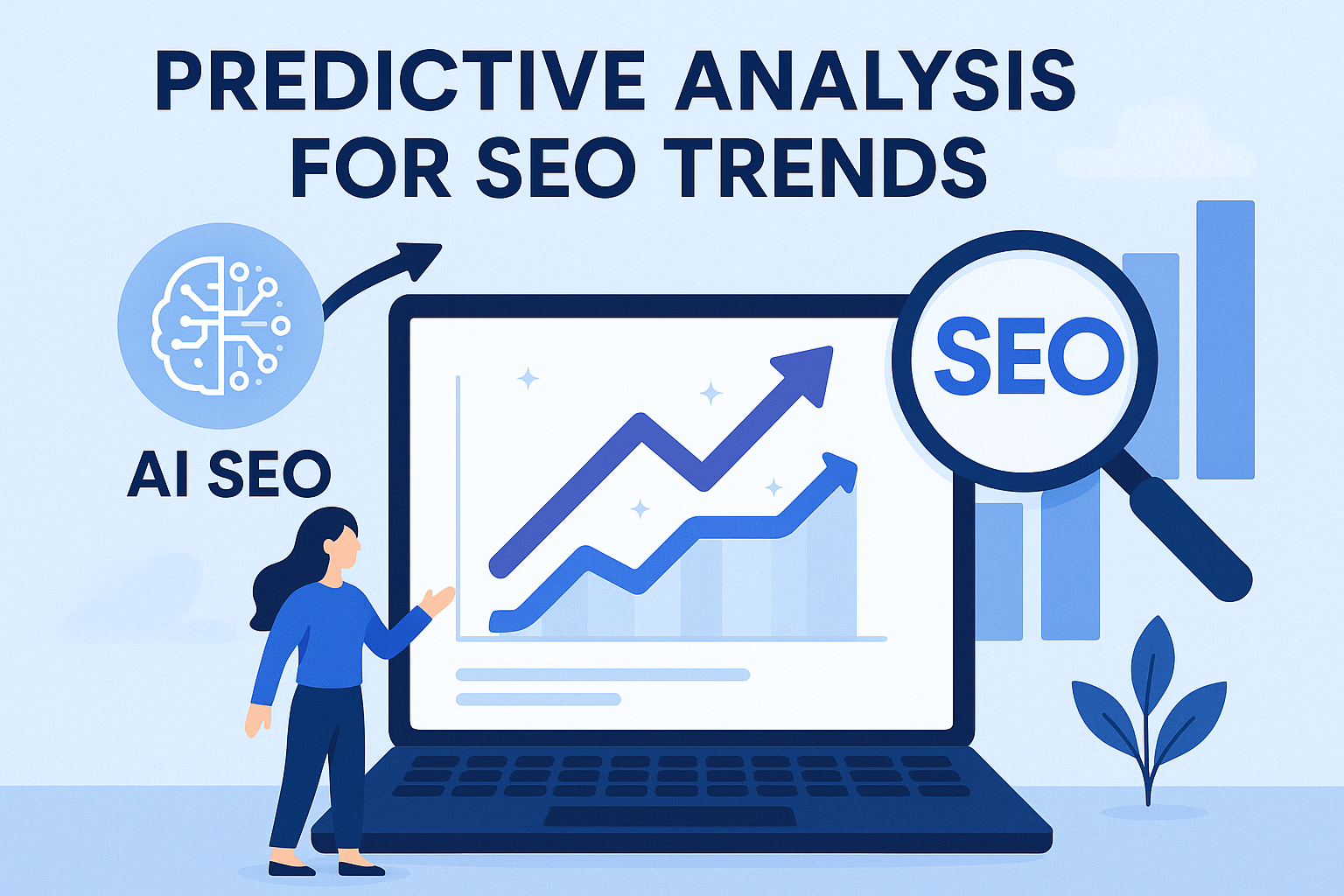
AI doesn’t just help businesses understand current SEO trends—it can predict future trends. By analyzing large datasets, tools can forecast changes in user behavior, algorithm updates, and emerging topics. This predictive ability allows businesses to stay ahead of competitors by adapting their SEO strategies early.
For example, tools can predict which keywords or topics will be popular, allowing businesses to focus on content creation before a trend becomes mainstream.
Explore more on predictive analysis for SEO trends on Search Engine Watch.
7. Optimizing for Voice Search
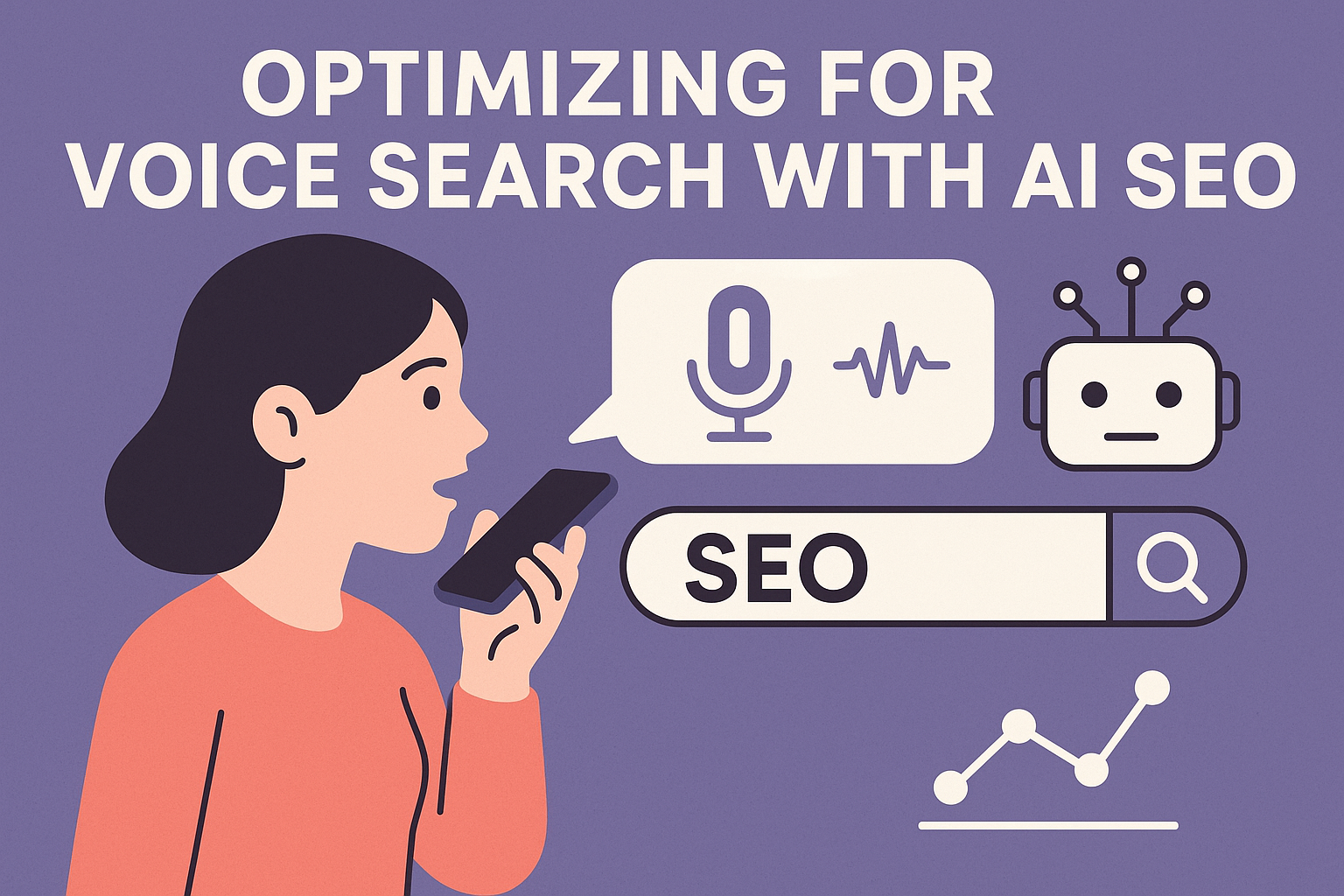
With the rise of virtual assistants like Siri, Google Assistant, and Alexa, voice search optimization has become crucial. plays a vital role in this by analyzing conversational language and optimizing content for voice search queries. These tools help businesses understand how users phrase their voice searches and adjust their content accordingly.
By focusing on question-based keywords such as “What is,” “How to,” or “Best ways to,” AI SEO helps businesses capture traffic from voice-enabled devices, further boosting their SEO performance.
Check out Google’s Guide to Voice Search Optimization for more.
8. Link Building
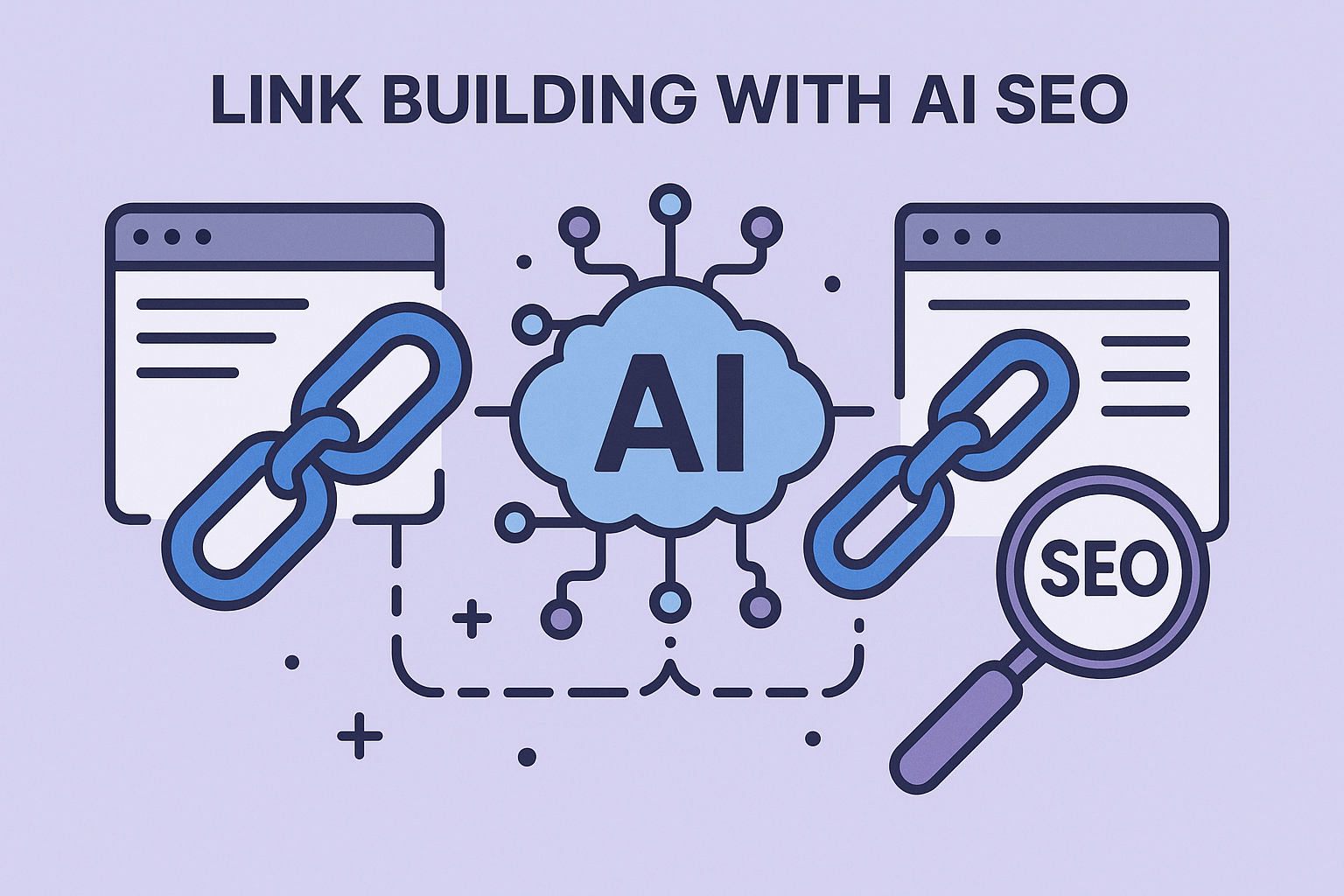
Link building is an essential SEO strategy, and AI SEO is enhancing this process. AI-powered tools can analyze competitors’ backlink profiles, identify authoritative link-building opportunities, and suggest effective strategies for acquiring high-quality backlinks.
Tools like Linkody and Majestic SEO use AI SEO to help marketers track their backlinks, ensuring they are aligned with SEO best practices and contribute positively to the site’s ranking.
To dive deeper into link-building strategies, explore Ahrefs’ Link Building Guide.
9. Content Gap Analysis
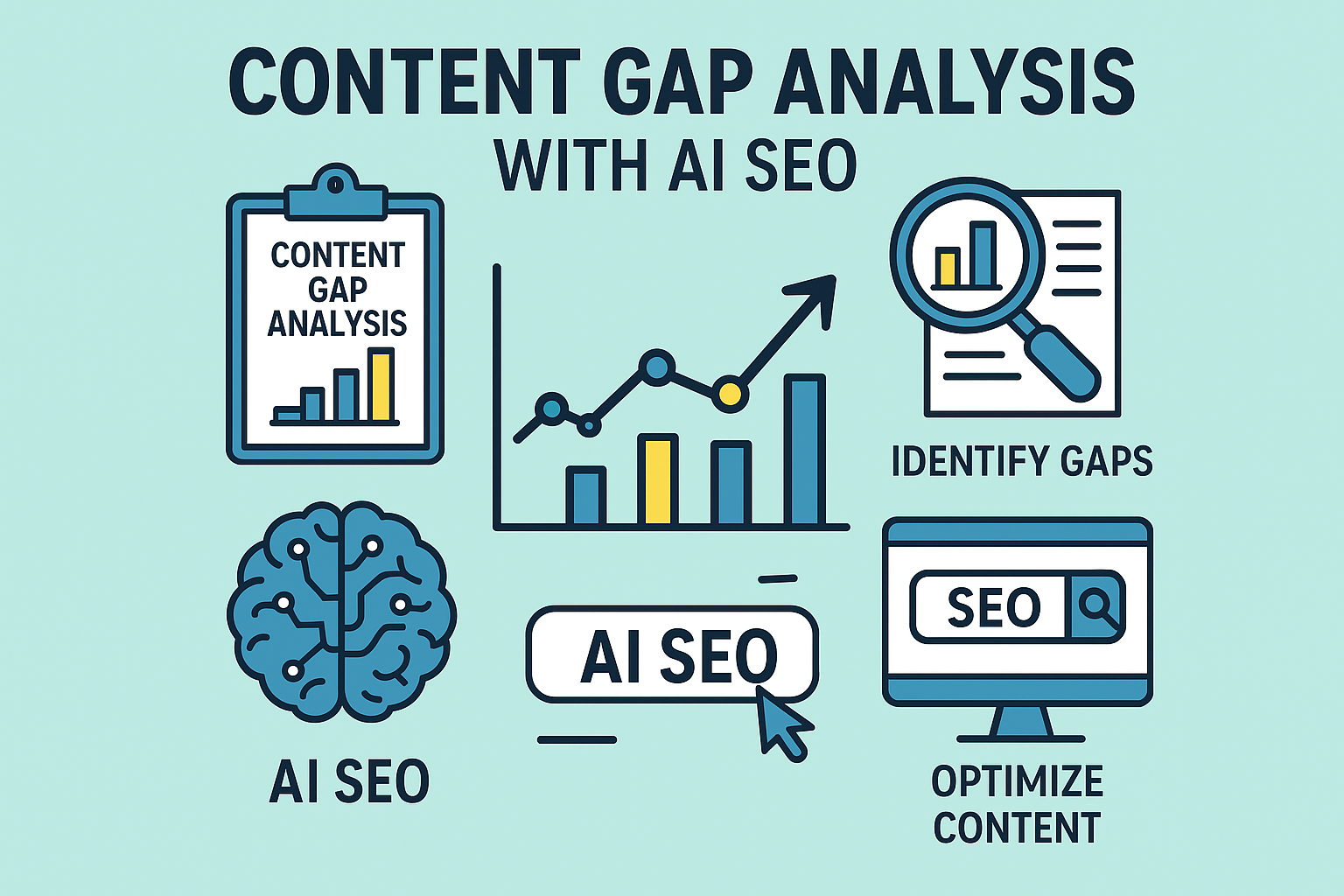
AI plays a crucial role in identifying content gaps on websites. By analyzing the content of top-ranking competitors, tools can uncover topics and keywords that have been overlooked or underexplored. This insight allows businesses to create targeted, high-quality content that fills these gaps, driving more organic traffic.
Tools like MarketMuse and Frase leverage AI SEO to provide recommendations for improving content quality and SEO performance.
For further insights, visit MarketMuse for AI-driven content gap analysis.
ALSO READ: My Top SEO Tools for 2025: Essential SEO Tools to Boost Your Rankings
Conclusion: AI SEO is the Future of Search Optimization
AI SEO is revolutionizing the way businesses approach search optimization. From improving keyword research and automating tasks to personalizing search results and optimizing user experience, AI is making SEO smarter and more efficient. With AI’s predictive capabilities, businesses can stay ahead of trends, optimize content more effectively, and deliver better results to their audience.
If you haven’t integrated into your digital marketing strategy yet, now is the perfect time to start. By leveraging tools, you can not only improve your search engine rankings but also provide a more personalized and engaging experience for your users, ensuring long-term success in the competitive digital marketplace.
